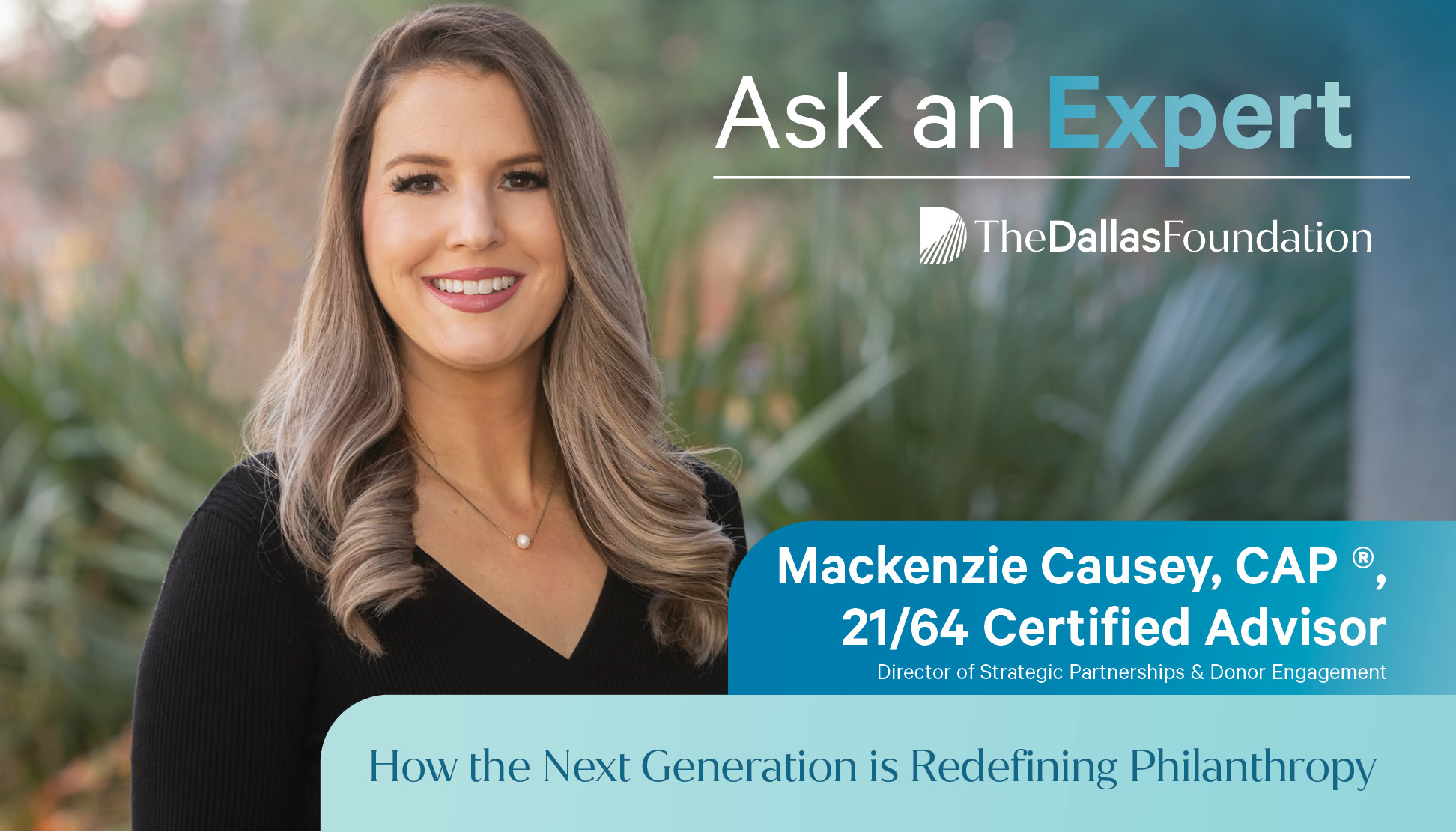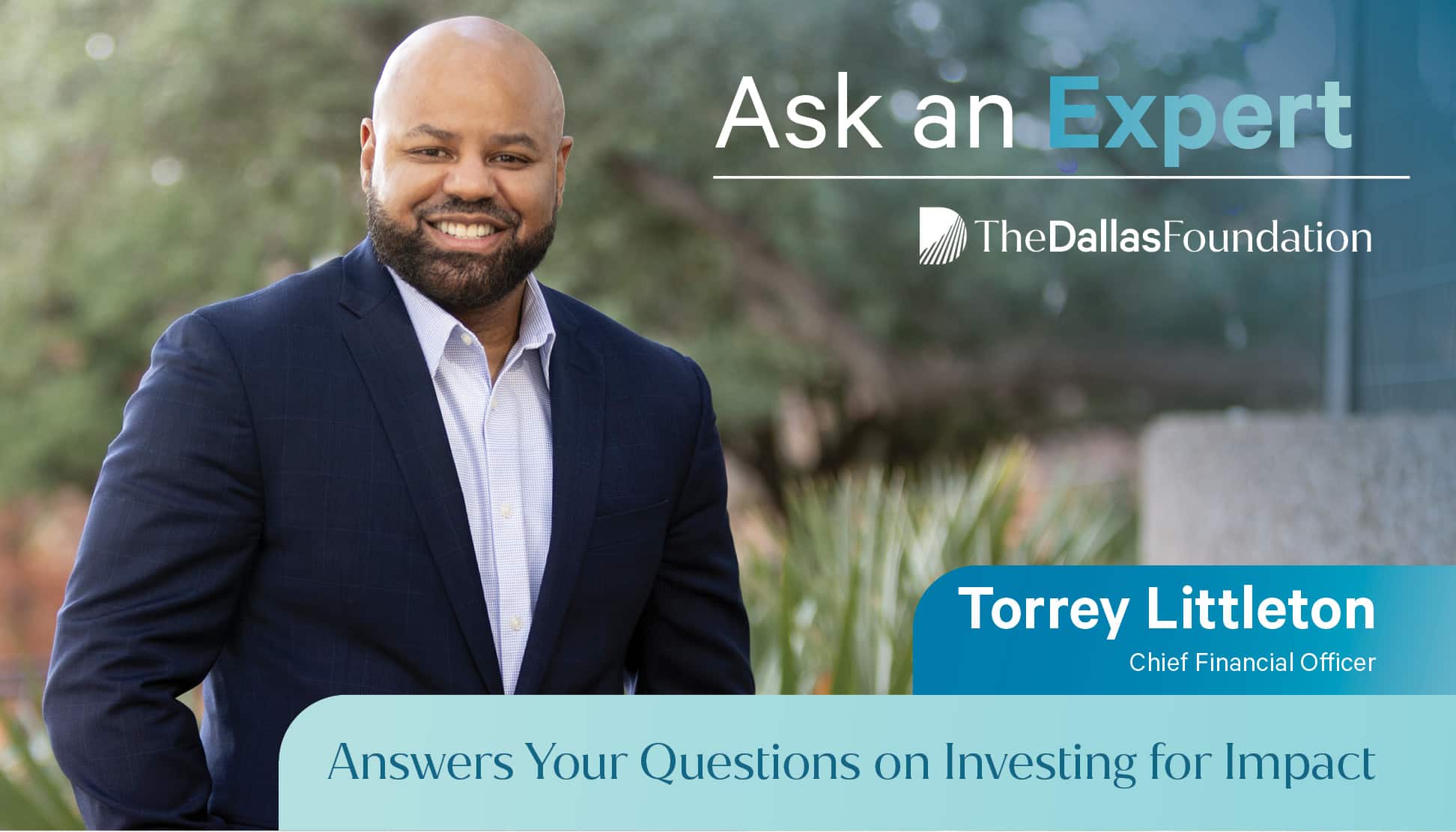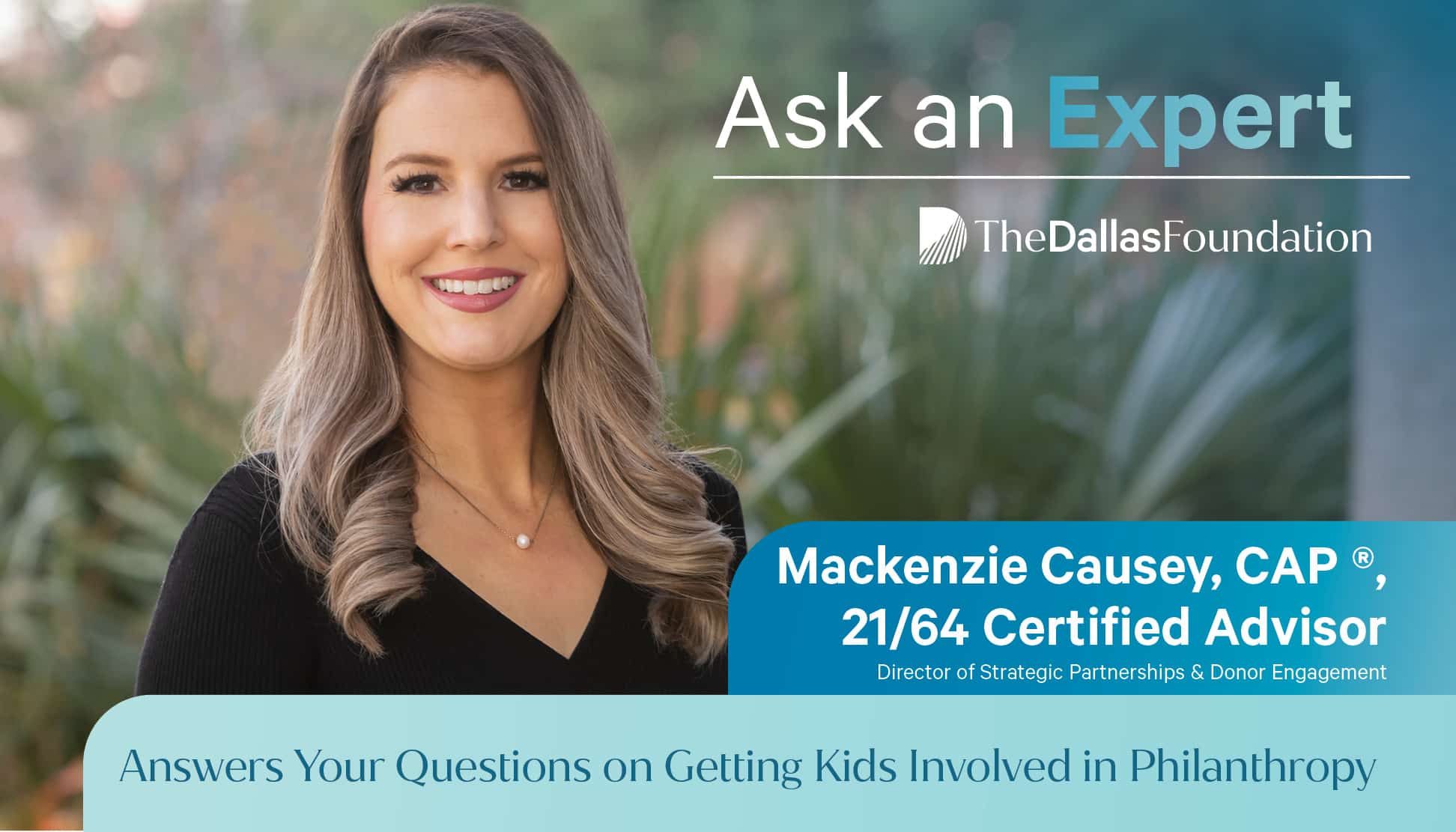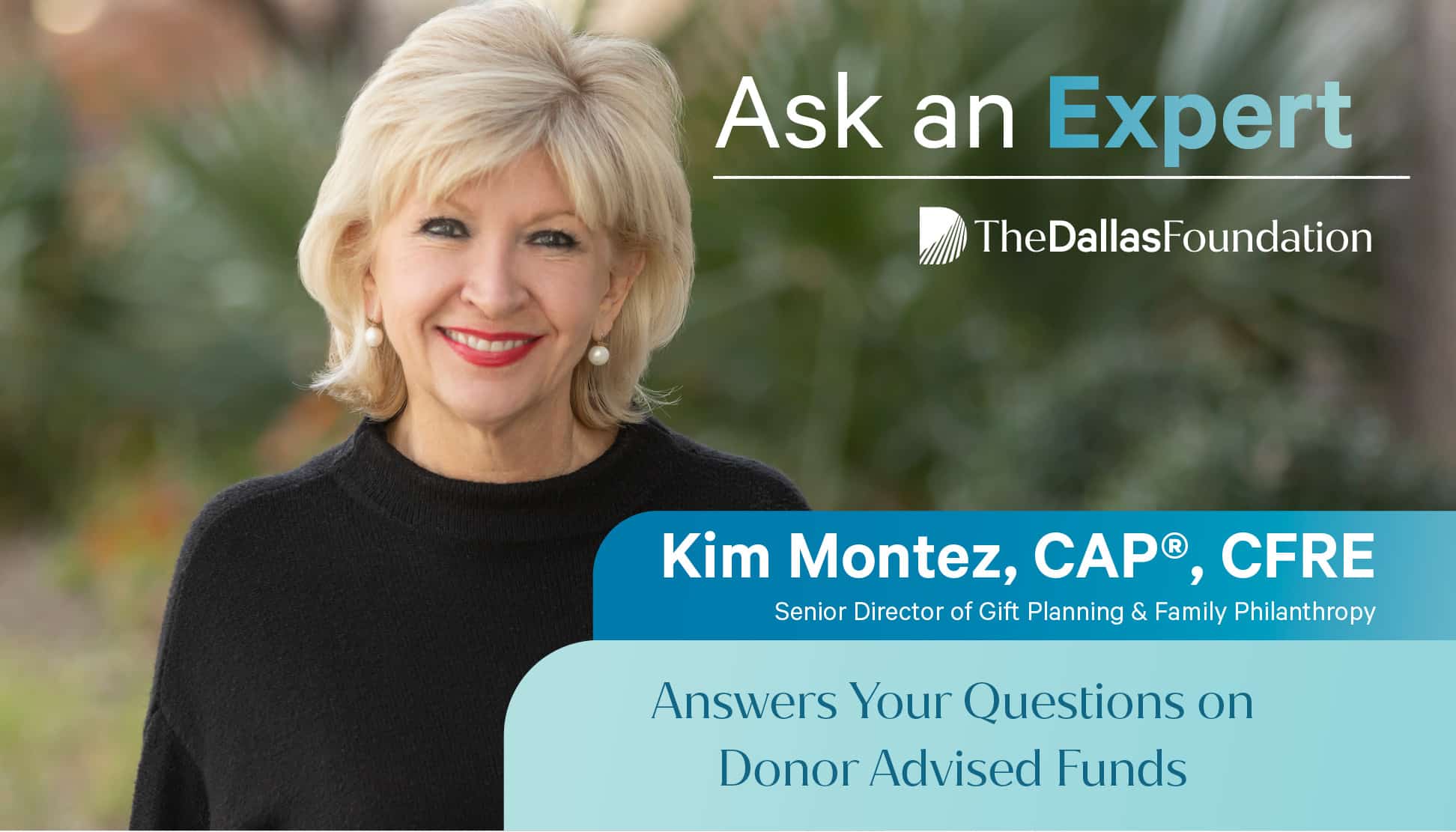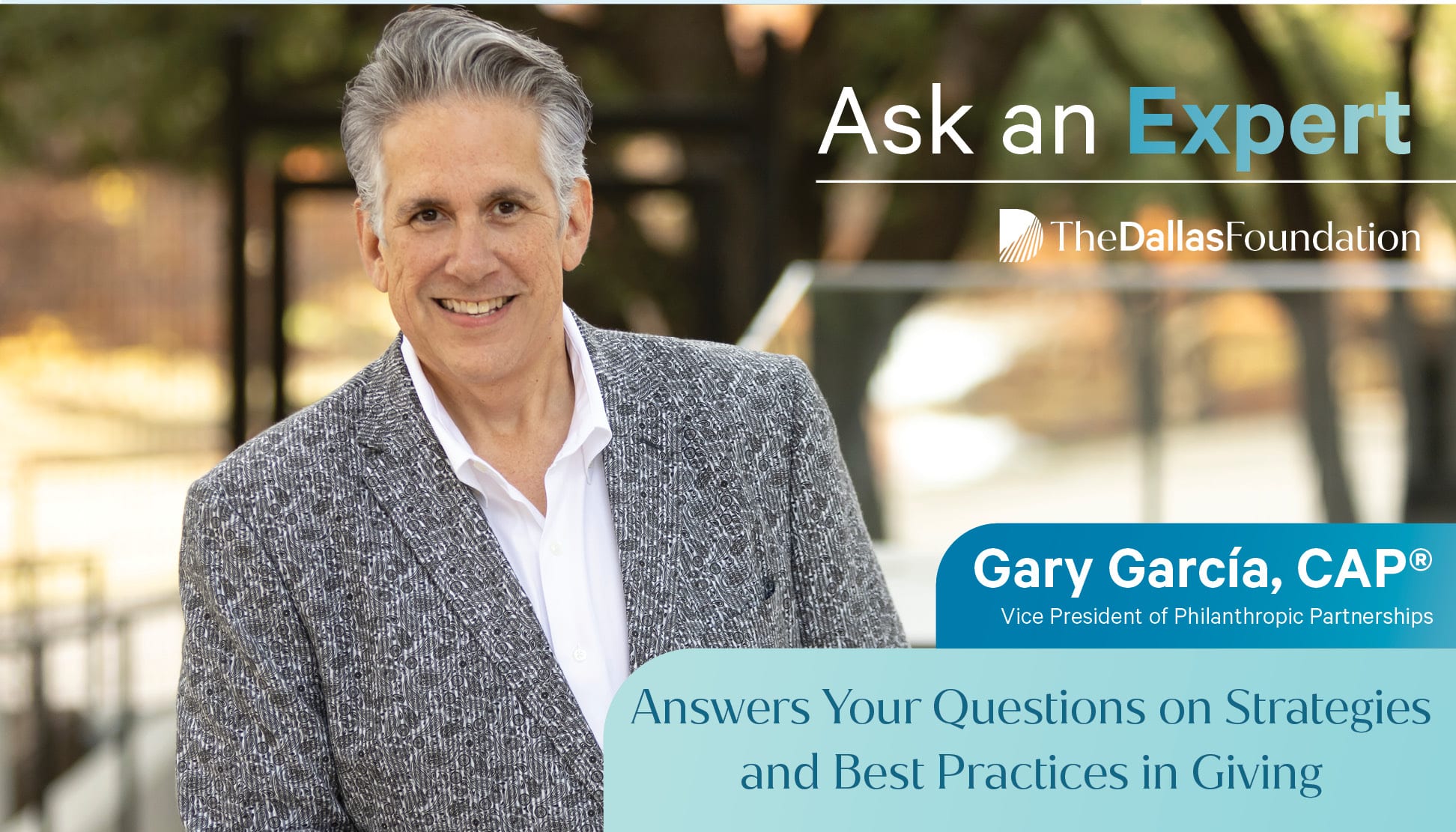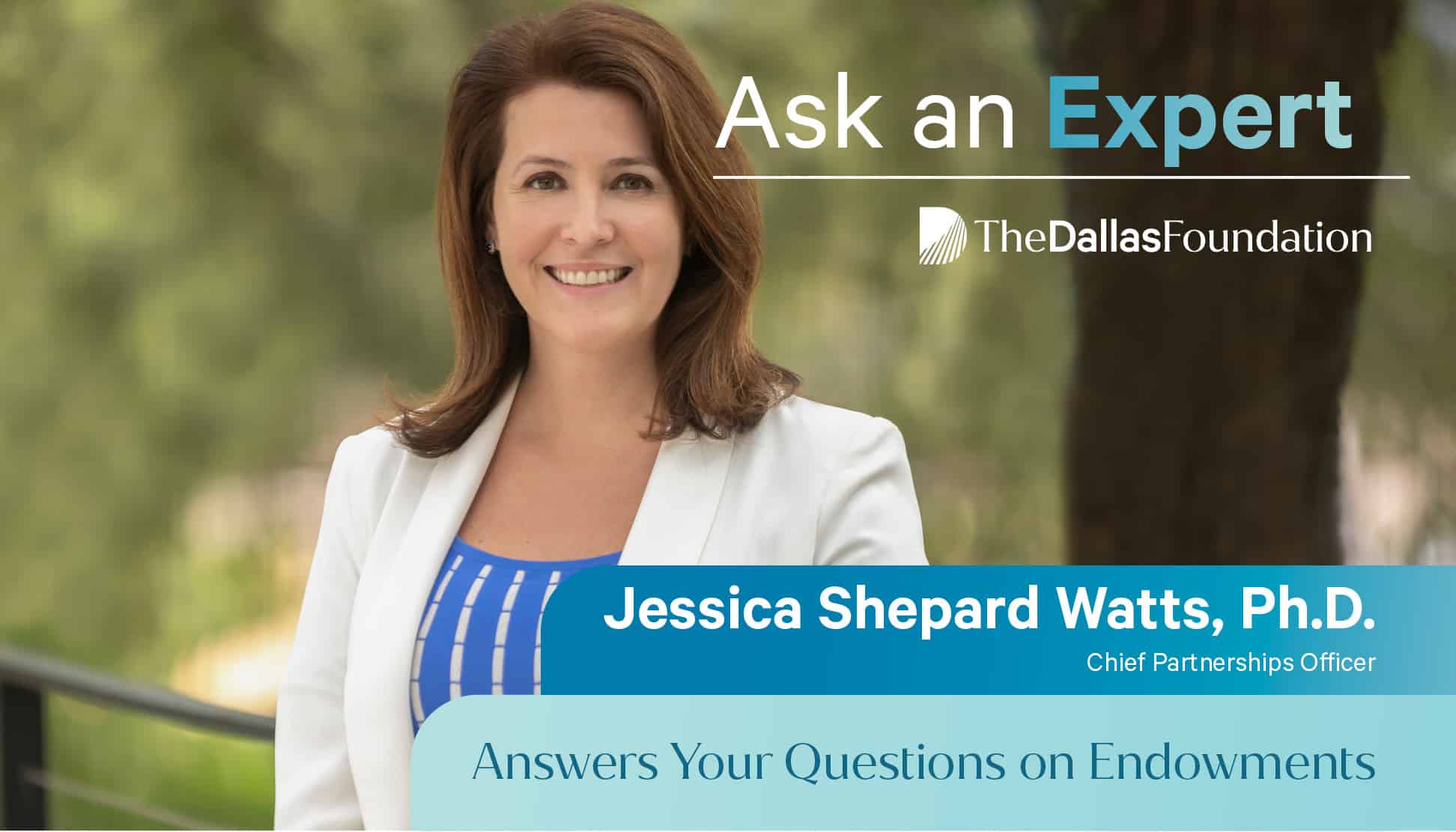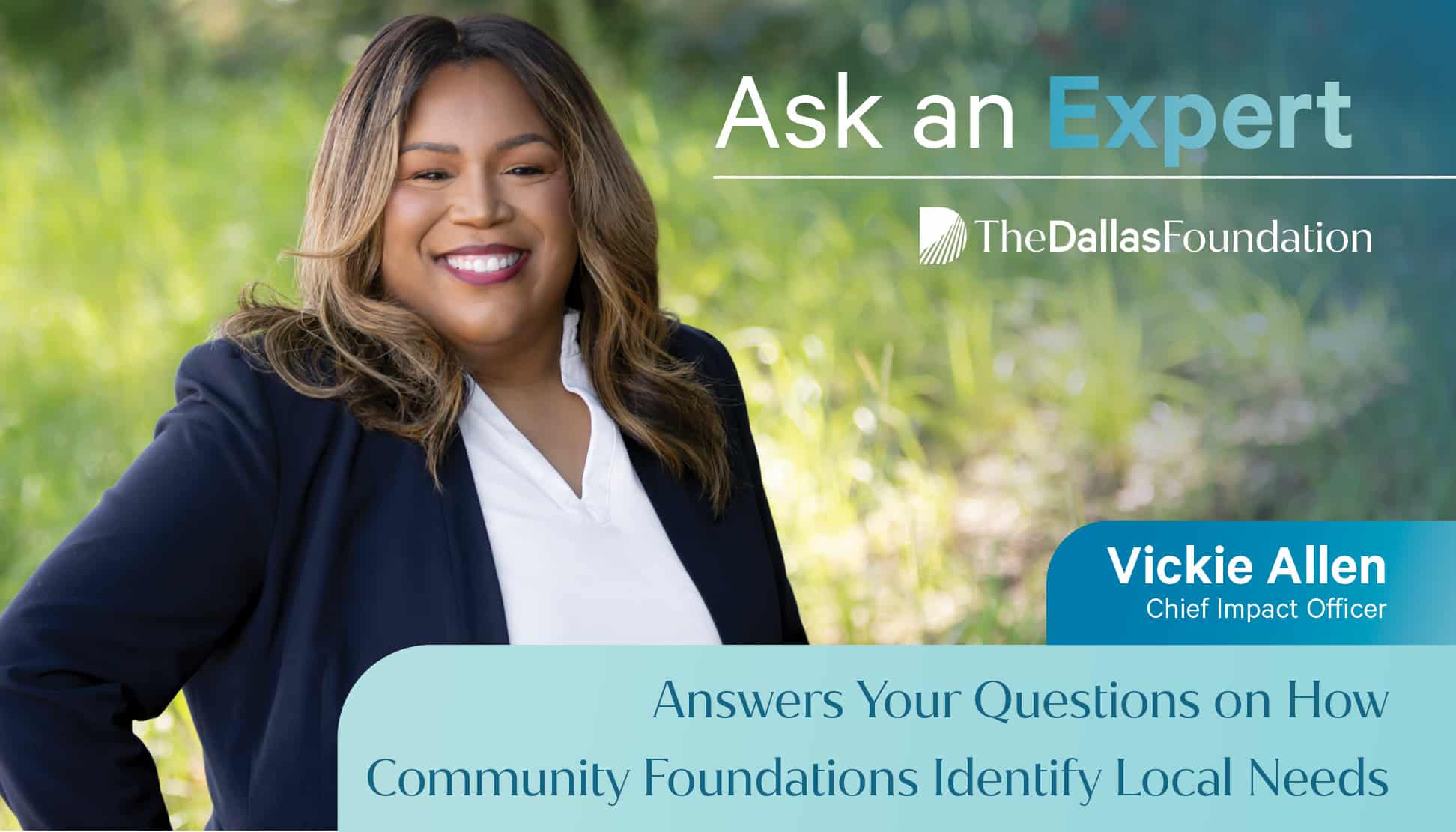Today’s emerging philanthropists are reshaping what giving looks like. They want to be part of the story—asking questions, engaging directly with the causes they care about, and aligning their philanthropy with their personal values. Their approach is less about writing a check and more about creating a legacy of connection, learning, and measurable impact.
In this edition of our Ask an Expert series, Mackenzie Causey, Senior Director of Strategic Partnerships & Donor Engagement, talks about how the next generation is transforming philanthropy, and what it means for families, communities, and the future of giving.
What are you seeing that’s different today compared to previous philanthropic generations?
There’s a shift from transaction to engagement. Younger donors want to understand the issues, meet nonprofit leaders, and see the impact firsthand. They view giving as a partnership, not just a financial exchange.
We’re also seeing more families include multiple generations in their decision-making. Parents, grandparents, and adult children are coming together to define shared values and make collective decisions about their philanthropy. That dynamic brings new perspectives—and sometimes new challenges—but ultimately creates a stronger sense of purpose.
What do you advise young or next-gen philanthropists who are just starting out?
Start with your values. Before thinking about where to give, think about why. What matters most to you? What kind of change do you want to help create?
Then, take time to listen and learn. Talk to nonprofit leaders, attend community events, and visit organizations in action. Even small gifts can have a big impact when paired with genuine curiosity and engagement.
Finally, remember that philanthropy isn’t just about money—it’s about time, influence, and relationships. The habit of involvement is what creates long-term, meaningful change.
What excites you most about how philanthropy is shifting?
The creativity and energy of the next generation. They’re asking big questions—about technology, inclusion, collaboration—and they’re not afraid to challenge traditional models.
They want giving to be dynamic, transparent, and adaptable. That mindset is pushing the entire philanthropic ecosystem to evolve in ways that are more inclusive and responsive to community needs. It’s incredibly inspiring to see.
How does The Dallas Foundation support this next generation of philanthropists?
Our role is to serve as a guide and partner. We help donors—especially those newer to philanthropy—define their goals, explore opportunities, and find the best ways to engage with causes they care about.
That can mean helping families establish funds, connecting them with nonprofit leaders, or facilitating learning experiences like Rising GENerosity, a program designed to help emerging donors discover how their giving can make a lasting difference.
At the end of the day, our job is to make philanthropy feel accessible, meaningful, and aligned with each donor’s vision for impact.
